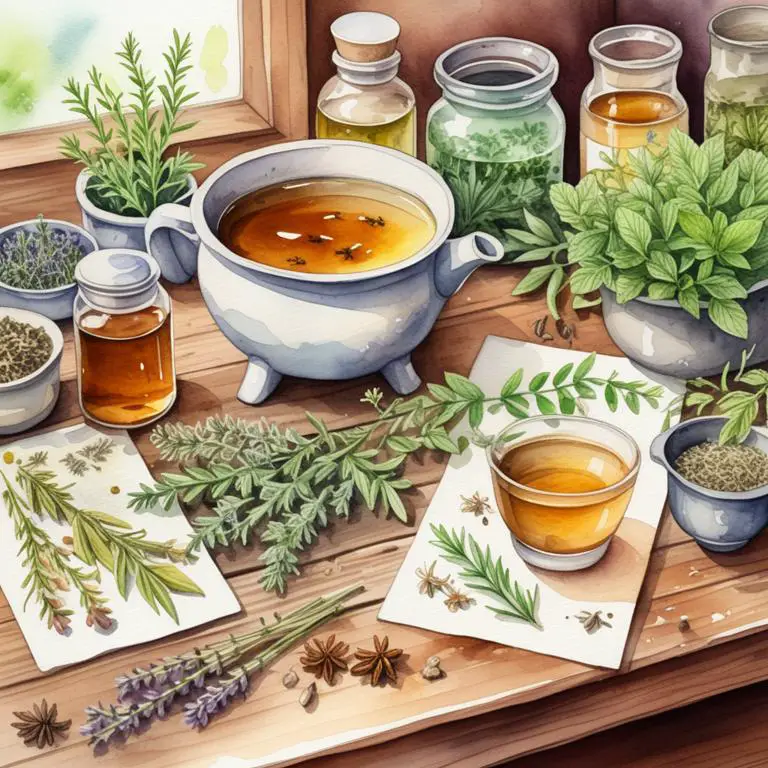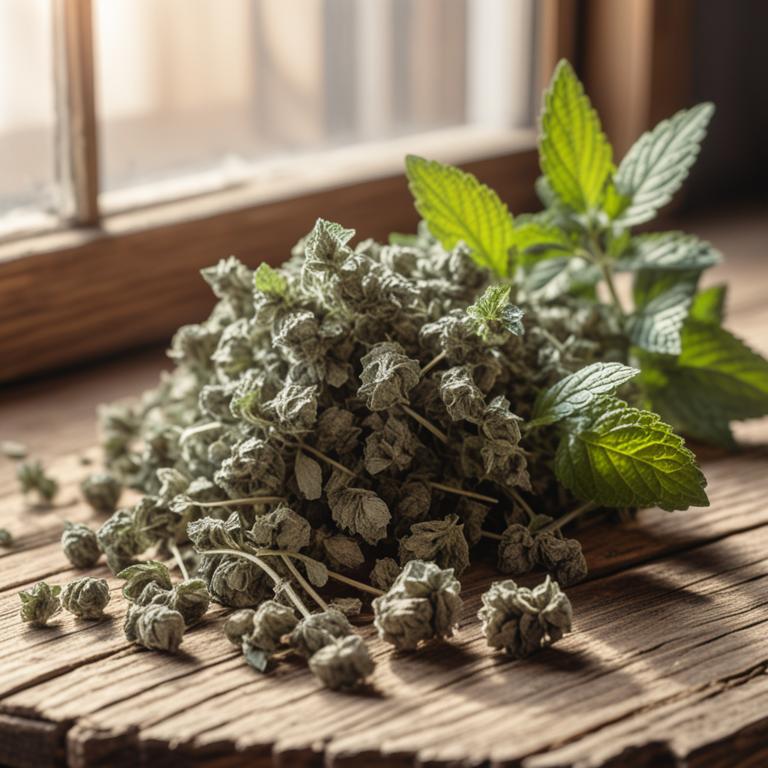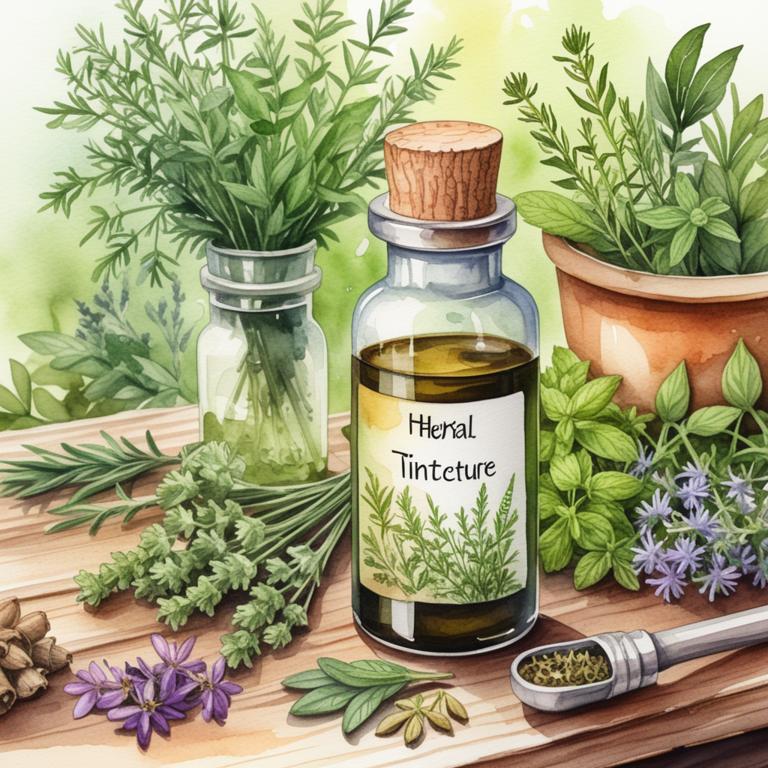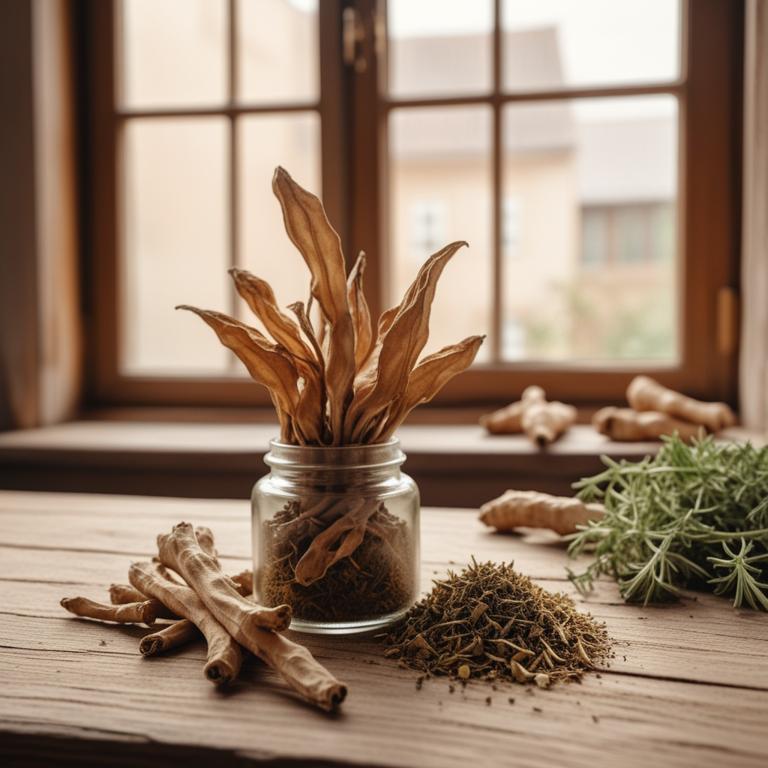Updated: Dec 1, 2024
Eye Floaters - Causes, Medicinal Herbs and Natural Preparations for Relief
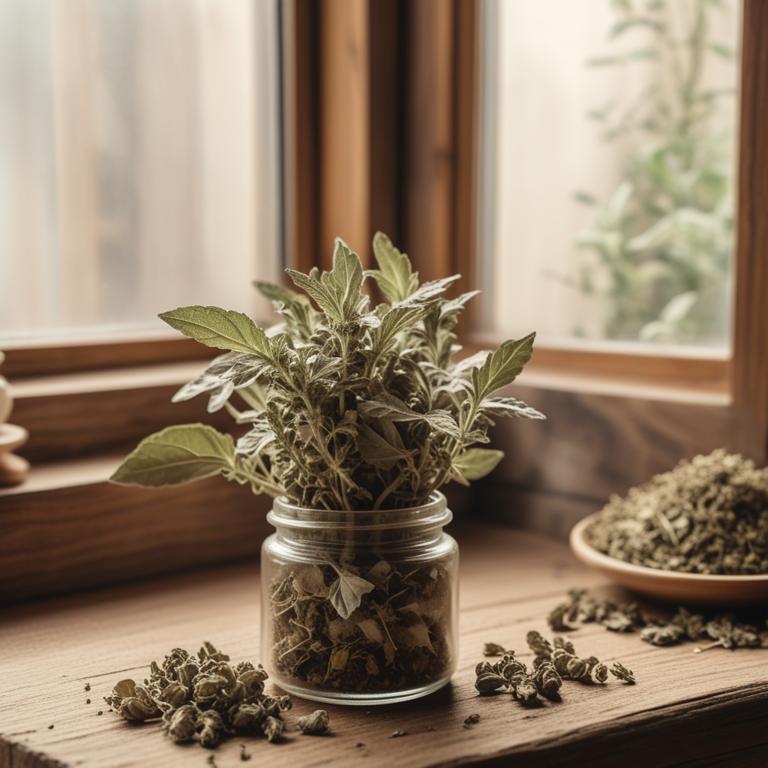
Eye floaters are tiny spots that appear in your vision, like cobwebs or specks of dust.
They're usually harmless, but they can be annoying and affect your daily life. Imagine trying to read or watch TV with these tiny floaters constantly moving in your field of vision - it can be frustrating and distracting. Eye floaters are caused by the aging process, where tiny fibers in the vitreous gel inside the eye break apart and cast shadows on the retina. Other causes include diabetes, high blood pressure, and eye injuries. Herbal remedies can help alleviate eye floaters.
Herbs like bilberry, ginkgo biloba, and chamomile have anti-inflammatory and antioxidant properties that may help reduce eye inflammation and promote healing. Bilberry, in particular, is rich in anthocyanins, which have been shown to improve retinal health. You can use bilberry as a tea by steeping dried bilberry leaves in hot water. Ginkgo biloba and chamomile can also be consumed as teas. Additionally, you can take bilberry supplements or apply ginkgo biloba eye drops to help soothe and protect your eyes.
These herbal remedies may help reduce the appearance of eye floaters and improve your overall eye health.
Table of Contents
What are the root causes of eye floaters?
The main causes of eye floaters are related to changes in the jelly-like substance inside the eye and the retina, the layer of light-sensitive tissue at the back of the eye.
One of the main causes is posterior vitreous detachment, where the vitreous gel starts to pull away from the retina. This can cause small pieces of the gel to break off and float in front of the retina, causing the floaters. Diabetes can also cause eye floaters due to the high levels of sugar in the blood damaging the blood vessels in the retina, making them more likely to break and cause floaters.
Additionally, people with diabetes are also more likely to develop retinal detachment, a condition where the retina partially or completely detaches from the back of the eye. Tractional retinal detachment occurs when scar tissue forms on the retina and pulls it away from the back of the eye, causing floaters. A retinal tear is another cause of eye floaters, where a small tear in the retina allows the vitreous gel to seep under the retina and cause a detachment.
This can also lead to a full retinal detachment, where the retina completely separates from the back of the eye, causing severe vision loss and floaters.
What benefits can herbs provide in the treatment of eye floaters?
Using certain herbs to help with eye floaters can be a great option for people who are looking for a natural solution.
These herbs have been used for centuries to promote eye health and improve vision. One of the main benefits of using these herbs is that they can help reduce the appearance of eye floaters by improving the health of the retina and the blood vessels in the eyes. This can lead to clearer vision and a reduction in the annoying spots that seem to float around in your line of sight.
Additionally, these herbs can help to improve circulation and reduce inflammation in the eyes, which can also help to alleviate eye floaters. Some people have also reported that using these herbs can help to improve their overall eye comfort and reduce eye strain. Furthermore, these herbs are often easy to incorporate into your daily routine, whether it's through tea, supplements, or topical applications. They can also be a great alternative to more invasive treatments, and may be less expensive in the long run.
By using these herbs, you can take a proactive approach to maintaining your eye health and potentially reducing the appearance of eye floaters.
What are the key herbal supplements for eye floaters?

When it comes to eye floaters, many of us are left wondering how to get rid of them.
One natural approach is to try using herbs that have anti-inflammatory and antioxidant properties. Let's take a closer look at some of the best herbs for eye health. Ginkgo biloba, for example, is a popular herb that improves blood flow to the eyes. This means it can help reduce the appearance of floaters by bringing more oxygen to the retina. Curcuma longa, or turmeric, is another herb that's great for eye health. It contains a powerful compound called curcumin, which has anti-inflammatory properties that can help reduce swelling and inflammation in the eyes. This can make eye floaters less noticeable. Centella asiatica, or gotu kola, is a herb that's been used for centuries to improve vision and memory.
It's rich in antioxidants that can help protect the eyes from damage and reduce the appearance of floaters. Zingiber officinale, or ginger, is another herb that's good for eye health. It has anti-inflammatory properties that can help reduce swelling and pain in the eyes. This can make eye floaters less noticeable and improve overall eye comfort. Bacopa monnieri, or brahmi, is a herb that's been used in Ayurvedic medicine to improve memory and cognitive function. It's also good for eye health, as it can help reduce inflammation and improve blood flow to the eyes. This can make eye floaters less noticeable and improve overall eye health. These herbs can be consumed as supplements or added to food and drinks. Some people also use herbal teas or infusions to get the benefits of these herbs.
It's always a good idea to talk to a healthcare professional before trying any new herbal remedies, especially if you have a underlying medical condition or are taking medication.
What herbal preparations are most frequently used to address eye floaters?
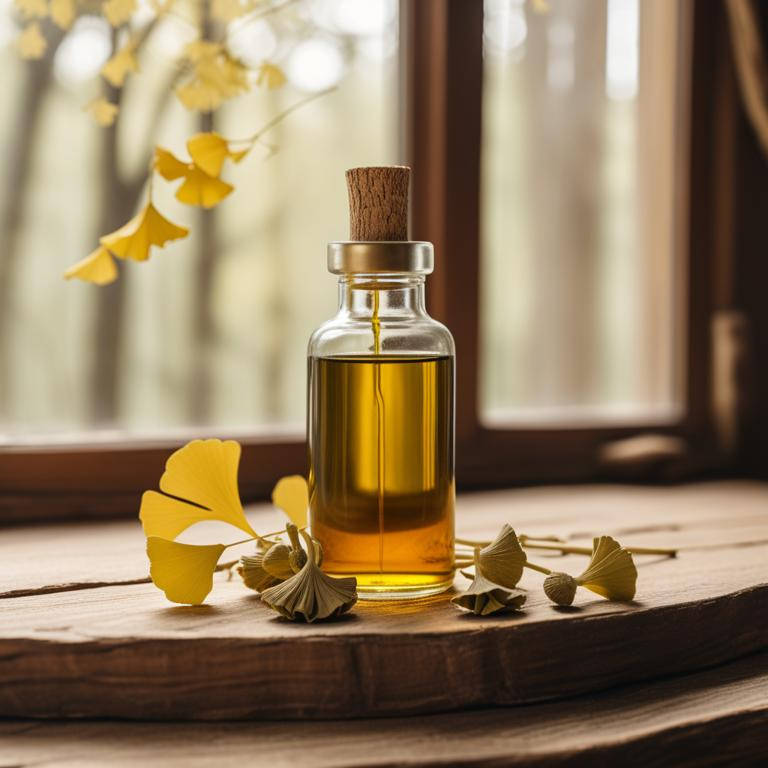
Herbal preparations can be helpful in dealing with eye floaters.
A tincture is a concentrated liquid extract of herbs. It's usually made by soaking herbs in a solvent like vodka or glycerin. Tinctures can be applied topically around the eyes or taken internally to help reduce inflammation and promote healing. The ant-inflammatory properties in herbs like bilberry, ginkgo biloba, and eyebright can help alleviate symptoms of eye floaters. A decoction is a liquid extract made by boiling herbs in water. It's often used for herbs that are hard to extract like roots and bark. Decoctions can be taken internally to help reduce inflammation and improve blood flow to the eyes. Herbs like goldenseal and echinacea have anti-inflammatory properties that can help reduce floaters. Capsules are a convenient way to take herbal supplements. They're filled with dried herbs that have been powdered and mixed with a filler like cellulose or starch.
Capsules can be taken internally to help reduce inflammation and promote healing. Herbs like bilberry and ginkgo biloba can help improve blood flow and reduce floaters. A salve is a topical cream or ointment made from herbs. It's applied directly to the skin around the eyes to help reduce inflammation and promote healing. Herbs like eyebright and goldenseal have ant-inflammatory properties that can help alleviate symptoms of eye floaters. An infusion is a liquid extract made by steeping herbs in hot water. It's often used for delicate herbs like leaves and flowers. Infusions can be taken internally to help reduce inflammation and promote healing. Herbs like bilberry and ginkgo biloba can help improve blood flow and reduce floaters. It's worth noting that while herbal preparations can be helpful in dealing with eye floaters, they may not be effective for everyone.
It's always best to consult with a healthcare professional before trying any new remedies.
Additional Resources:
Which herbs should you be wary of if you have eye floaters?
If you have eye floaters, it's a good idea to limit your use of certain herbs.
Rauvolfia serpentina, for instance, can cause blood vessels to become narrow, which might worsen the appearance of floaters. Valeriana officinalis, commonly used for sleep and anxiety, can also have a similar effect on blood vessels, making eye floaters look more prominent. Paeonia lactiflora, known for its anti-inflammatory properties, can sometimes cause a condition called retinal hemorrhaging, which can increase the visibility of floaters.
Cinchona officinalis is a source of quinine, and taking quinine can cause the blood vessels in the eyes to become more fragile, leading to more noticeable floaters. Lavandula angustifolia, a popular herb for calming and relaxation, can also affect blood vessels in a way that worsens eye floaters. Some people experience an increase in blood pressure when using this herb, which can cause more floaters to appear. It's essential to be aware of how these herbs might affect your eyes, especially if you already have eye floaters.
If you're experiencing eye issues, it's best to consult with a healthcare professional before using any new herbs or supplements.
FAQ
Are there any specific herbs that can prevent eye floaters?
Some herbs may help reduce eye floaters.
Ginkgo biloba, for example, has been studied for its potential benefits in improving blood flow to the eyes. Bilberry, a type of fruit, is also rich in antioxidants that may help protect the retina and reduce floaters.
These herbs may help improve vision clarity, but more research is needed to confirm their effectiveness.
Is it safe to use herbal remedies for eye floaters during pregnancy?
When using herbal remedies for eye floaters during pregnancy, it's essential to be cautious.
Some herbs can interact with other substances or trigger complications. If you're considering herbal remedies, look for those that have been studied and are known to be safe for pregnant women.
However, it's best to talk to someone who knows about herbal remedies and pregnancy to make sure you're making a safe choice.
Are there any herbs that can reduce the frequency of eye floaters?
Some people find that taking omega-3 supplements or consuming foods rich in omega-3, like fish oil and flaxseeds, can help reduce eye floaters.
These supplements may help reduce inflammation in the eyes, which can contribute to the formation of floaters.
They may also improve blood flow to the eyes, which can help keep the vitreous gel in the center of the eye, reducing the likelihood of floaters.
Can i combine different herbal remedies for eye floaters?
Combining herbal remedies for eye floaters is possible, but be cautious.
Some herbs, like bilberry and ginkgo biloba, may interact with each other or with medications. Start with small doses and monitor your body's response.
You can try combining remedies like eyebright with marshmallow root, but listen to your body and adjust as needed.
Related Articles
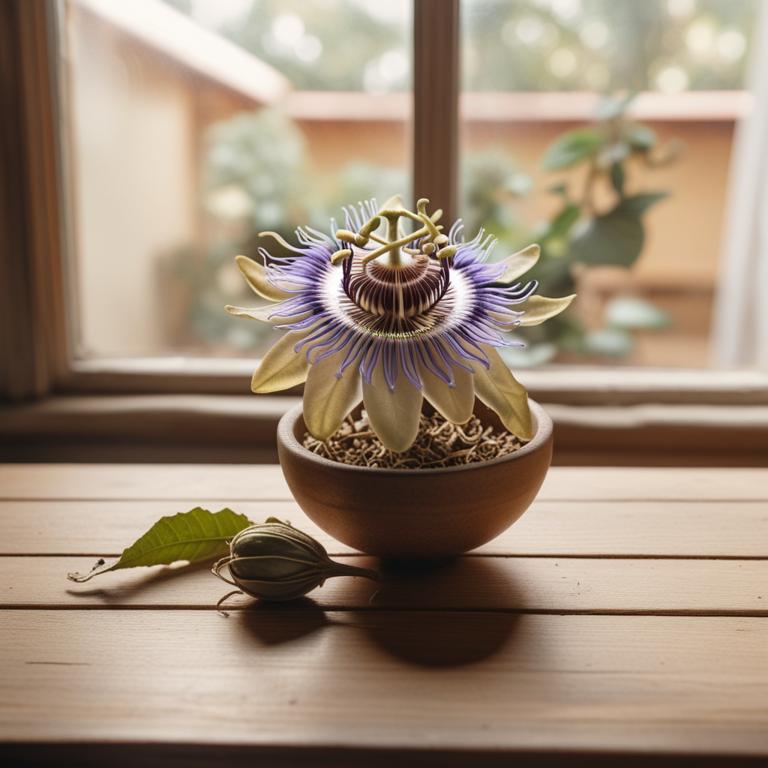
Understanding Insomnia: Causes, Medicinal Herbs, and Herbal Remedies
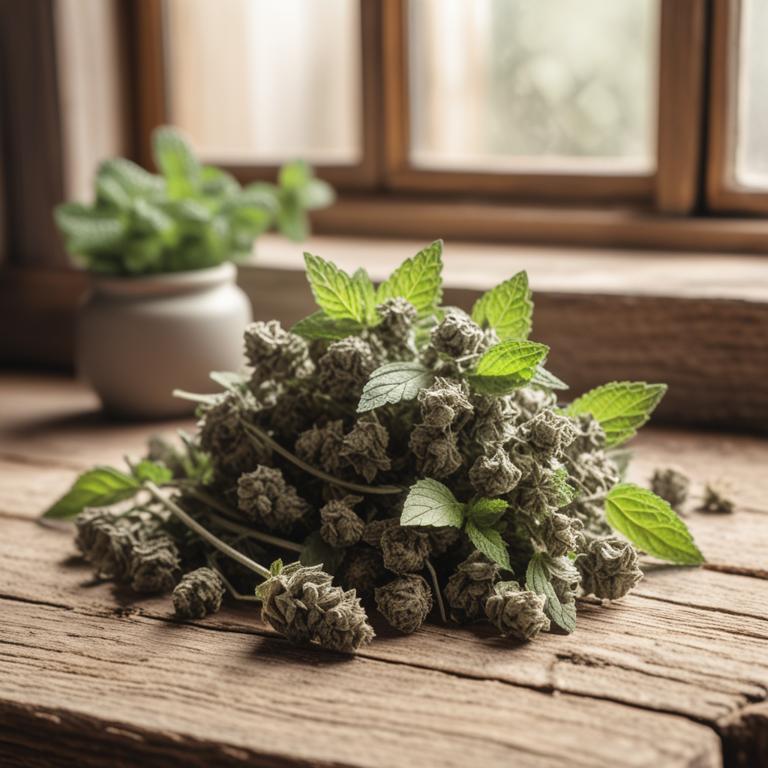
Migraine: Understanding the Causes and Herbal Remedies
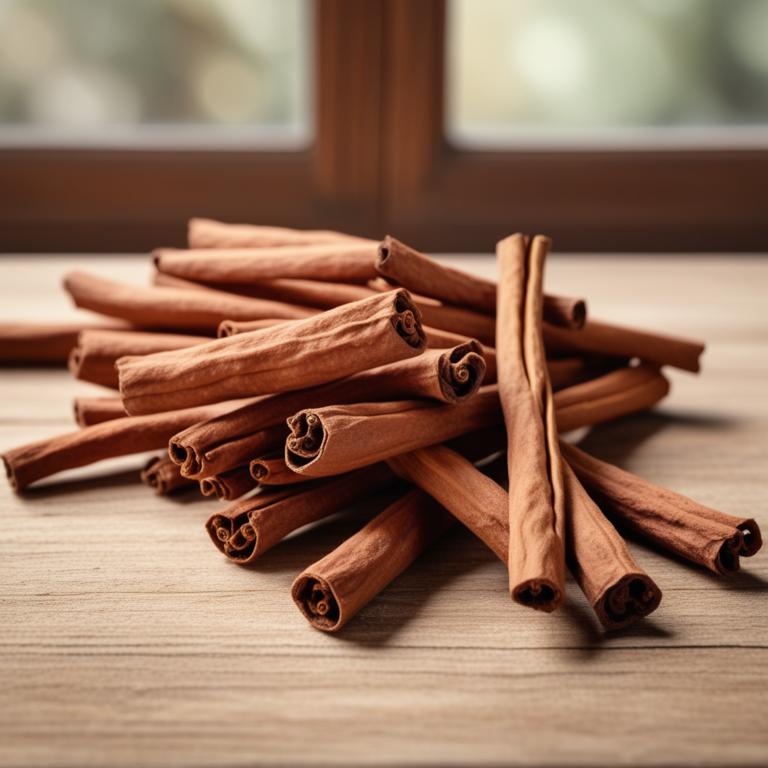
Breaking the Cycle of Bad Taste with Medicinal Herbs and Herbal Preparations
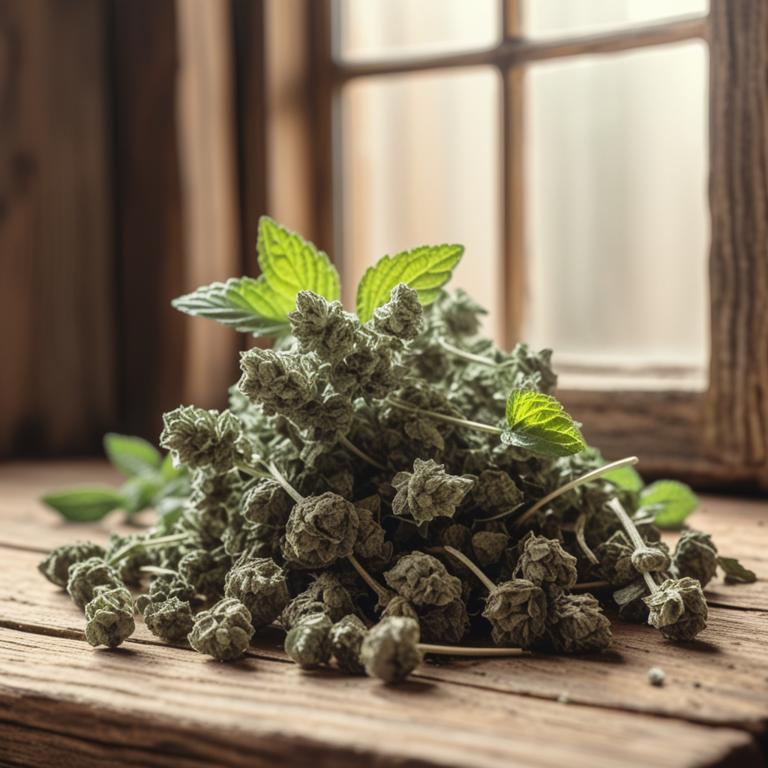
Understanding Taste Changes: Causes, Medicinal Herbs, and Herbal Preparations
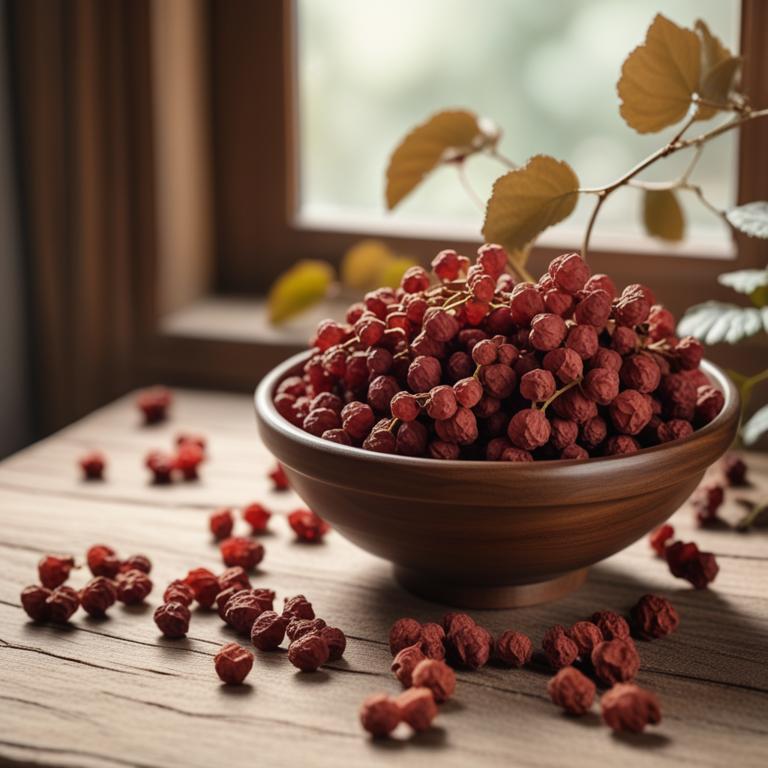
Understanding Fatigue: Causes, Medicinal Herbs, and Herbal Remedies
